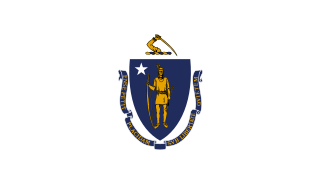
Lewis Capet Shepard was a Union Navy sailor during the American Civil War who received America's highest military decoration, the Medal of Honor, for his actions at the Second Battle of Fort Fisher. Due to a Navy clerical error however his citation and history will always record his first name as Louis.
Seaman Philip Bazaar, born in Chile, South America, was a United States Navy seaman who was awarded the Medal of Honor, the highest military decoration of the United States for valor in combat. According to the citation he distinguished himself during the battle for Fort Fisher of the American Civil War.

Franklin L. Wilcox was a U.S. sailor stationed aboard the USS Minnesota during the American Civil War. He received the Medal of Honor for his actions during the Second Battle of Fort Fisher on January 15, 1865.

Thomas Harcourt was a U.S. sailor stationed aboard the USS Minnesota during the American Civil War. He received the Medal of Honor for his actions during the Second Battle of Fort Fisher on January 15, 1865.

Thomas Connor was a U.S. sailor stationed aboard the USS Minnesota during the American Civil War. He received the Medal of Honor for his actions during the Second Battle of Fort Fisher on January 15, 1865.

Gurdon H. Barter was a U.S. sailor stationed aboard the USS Minnesota during the American Civil War. He received the Medal of Honor for his actions during the Second Battle of Fort Fisher on January 15, 1865.

Charles Mills was a U.S. sailor stationed aboard the USS Minnesota during the American Civil War. He received the Medal of Honor for his actions during the Second Battle of Fort Fisher on January 15, 1865.

Augustus Williams was a seaman in the U.S. Navy stationed aboard the USS Santiago de Cuba (1861) during the American Civil War. He received the Medal of Honor for his actions during the Second Battle of Fort Fisher on January 15, 1865.

Othniel Tripp was a sailor in the U.S. Navy stationed aboard the USS Seneca (1861) during the American Civil War. He received the Medal of Honor for his actions during the Second Battle of Fort Fisher on January 15, 1865.

Henry S. Webster was a sailor in the U.S. Navy stationed aboard the USS Susquehanna (1850) during the American Civil War. He received the Medal of Honor for his actions during the Second Battle of Fort Fisher on January 15, 1865.

Auzella Savage was a sailor in the U.S. Navy stationed aboard the USS Santiago de Cuba during the American Civil War. He received the Medal of Honor for his actions during the Second Battle of Fort Fisher on January 15, 1865.

Edward R. Bowman was a sailor in the U.S. Navy during the American Civil War. He received the Medal of Honor for his actions during the Second Battle of Fort Fisher on January 15, 1865.

Albert Burton was a sailor in the U.S. Navy during the American Civil War. He received the Medal of Honor for his actions during the Second Battle of Fort Fisher on January 15, 1865.

William Campbell was a sailor in the U.S. Navy during the American Civil War. He received the Medal of Honor for his actions during the Second Battle of Fort Fisher on January 15, 1865.

Charles H. Foy was a sailor in the U.S. Navy during the American Civil War. He received the Medal of Honor for his actions during the Second Battle of Fort Fisher on January 15, 1865.

John Griffiths was a sailor in the U.S. Navy during the American Civil War. He received the Medal of Honor for his actions during the Second Battle of Fort Fisher on January 15, 1865.

Thomas Jones was a sailor in the U.S. Navy during the American Civil War. He received the Medal of Honor for his actions during the Second Battle of Fort Fisher on January 15, 1865.

George Province was a sailor in the U.S. Navy during the American Civil War. He received the Medal of Honor for his actions during the Second Battle of Fort Fisher on January 15, 1865.

John Swanson was a sailor in the U.S. Navy during the American Civil War. He received the Medal of Honor for his actions during the Second Battle of Fort Fisher on January 15, 1865. His birth name was Jacob Johnson.
Find A Grave is a website that allows the public to search and add to an online database of cemetery records. It is owned by Ancestry.com. It receives and uploads digital photographs of headstones from burial sites, taken by unpaid volunteers at cemeteries. Find A Grave then posts the photo on its website.

The United States Army Center of Military History (CMH) is a directorate within TRADOC. The Institute of Heraldry remains within the Office of the Administrative Assistant to the Secretary of the Army. The center is responsible for the appropriate use of history and military records throughout the United States Army. Traditionally, this mission has meant recording the official history of the army in both peace and war, while advising the army staff on historical matters. CMH is the flagship organization leading the Army Historical Program.










